How is a nighttime panic attack different from a nightmare or night terrors?
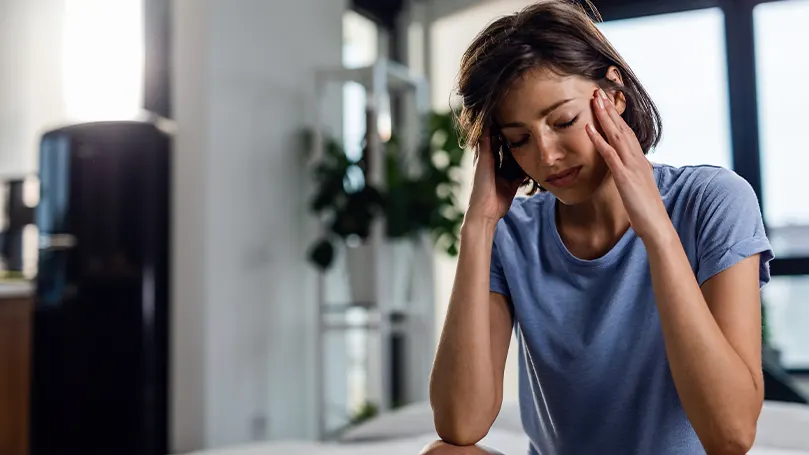
Before we get into the meat and potatoes, it's important to nail down what exactly a nocturnal panic attack is. It might seem obvious to some (especially if you've experienced panic attacks before) but confusion can arise.
Night terrors might seem similar to panic attacks as they'll have the affected person toss and turn or even scream during the night. However, the difference is that night terrors don't wake you up and the affected person won't even remember what terrified them in the first place.
Nightmares are a bit more tricky, as the physical symptoms are very similar to that of a panic attack. Namely, nightmares will have the person wake up, often accompanied by an increased heart rate, sweat, and fear. And unlike night terrors, nightmares can usually be recalled.
Lastly, nighttime panic attacks lie somewhere in the middle. Just like nightmares, they wake the affected person up but just like night terrors, the person has no recollection of why they're suddenly awake. Plus, panic attack symptoms at night tend to be more severe than that of nightmares or night terrors (sometimes even being confused for a heart attack).
Nocturnal panic attack symptoms
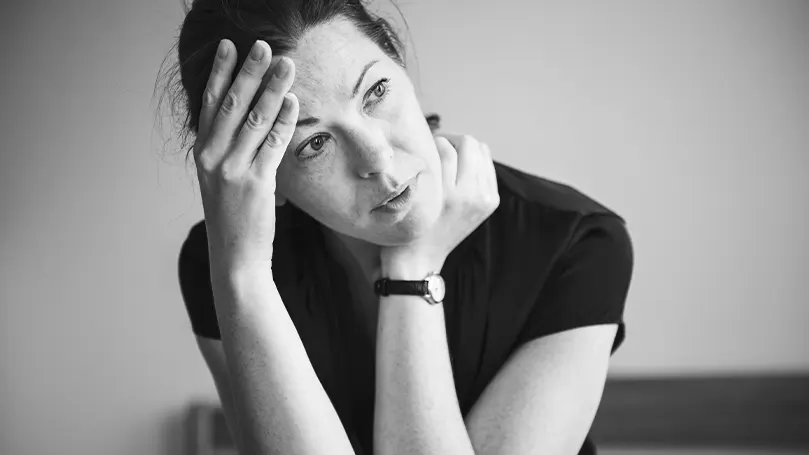
Nocturnal panic attack symptoms (NHS) include:
- shaking
- sweating
- feeling disorientated
- chills
- nausea
- rapid and/or irregular heartbeats
- dry mouth
- breathlessness
- dizziness
- a feeling of terror/fear
Panic attack symptoms at night are the same as during the day, and as you can see, to experience panic attacks isn't exactly a walk in the park. And the fact that it can occur during the night only makes things more confusing and terrifying. However, it's also important to note that many other mental health conditions and sleep disorders have very similar symptoms.
So, we suggest taking a few key things into account. Firstly, the timing. As we'll discuss later on, people experiencing nocturnal panic attacks usually also have panic attacks during the day. So, very often you need both nocturnal and daytime panic attacks in order to be certain it isn't some other condition.
Secondly, think of your mental state. A lot of conditions have the same symptoms physically, however, the feeling of intense fear should point you in the right direction. So, this can be another cue to separate panic attacks from other disorders.
All of this being said, seeing a professional is always your best bet and you shouldn't self-diagnose based on these loose guidelines. Especially since science is still a bit fuzzy on what causes a panic attack in the first place.
Why do nocturnal panic attacks occur?

Unfortunately, science has yet to determine exactly what causes nocturnal panic attacks (or panic attacks in general). But we do know that it closely ties into how our brain and nervous system treat anxiety and fear. Therefore, risk factors include:
- Having anxiety disorders
- Being depressed
- Sleep disorders like insomnia and sleep apnea
- Obsessive-compulsive disorder (OCD)
- Use and/or addition to substances such as alcohol and drugs
And, as we've mentioned, you'll likely have panic attacks during the day as well – since nocturnal panic attacks are rarely exclusive.
How to treat anxiety and panic attacks at night
While there isn't any way to prevent nocturnal panic attacks altogether, there are a few things you can do in order to make the experience easier on yourself. So, let's go over the few different ways you can lessen the symptoms.
And just to put it out there, nocturnal panic attacks are treatable. So, don't lose hope if the following list seems overwhelming.
Avoid caffeine, smoking and alcohol
While these things are unlikely to trigger panic attacks, they do seem to make them a lot worse. After all, these substances commonly lower your overall sleep quality and can make your body (and mind) less capable of handling stress and tension.
That being said, if you're addicted to any of these substances, make sure to get advice or help from a professional in order to make the process a bit easier. After all, quitting cold turkey and with no guidance can cause even more stress in the first few weeks.
Practice breathing exercises
When you experience nocturnal panic attacks, you'll likely feel like you can't get enough air and that may cause you to tense up even more. For this reason, getting in the habit of doing breathing exercises, with long, controlled inhales and exhales, can help you out quite a bit.
Not only do breathing exercises help with being calmer overall but they're also an excellent tool to ride out the panic attack itself and make it feel a bit less severe. This is especially useful if you're alone at the time of the attack and need a way to calm yourself down quickly.
Try to stay healthy
Having a healthy diet, regular exercise, and enough sunlight are all things that can make your life better overall. Odds are that these types of lifestyle changes will bring forth more energy and a more optimistic outlook on life – leading to less chronic stress and hopefully fewer night-time panic attacks as well.
Plus, these changes are essential for good sleep hygiene, which can only further benefit your mental and physical health. So, it's an overall win.
Enlist the help of a therapist
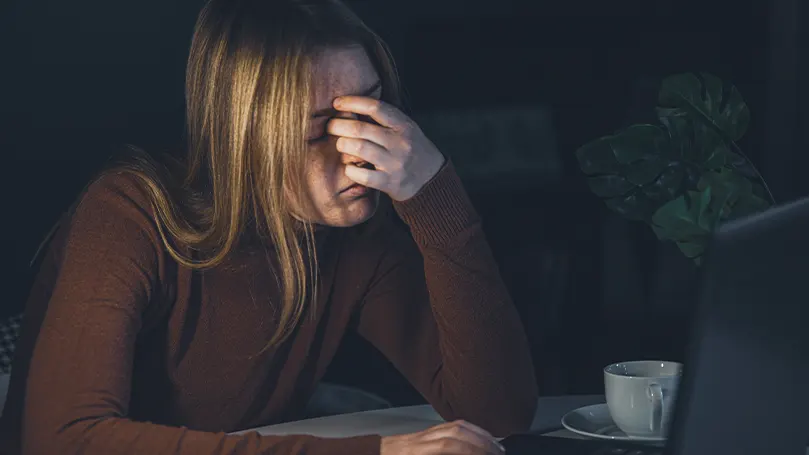
Although there still exists a certain stigma when it comes to going to therapy, it's one of the best things you can do in order to combat mental health disorders and introduce balance into your life.
As we've said, panic attacks can often be byproducts of other mental issues, so seeing a mental health professional can be like taking down two birds with one stone. So, if you suspect you might be suffering from depression or have been diagnosed with post-traumatic stress disorder or OCD, seeing a therapist is your best course of action.
And even if you don't believe these conditions apply to you, we suggest trying out Cognitive Behavioural Therapy, as it can help isolate stress triggers and stop you from having frequent panic attacks.
Seek out the appropriate medication
If having a nocturnal panic attack is too stressful of a situation to deal with through talking or breathing exercises, getting the appropriate medication is your best bet. However, there is one thing that's important to keep in mind.
Namely, anxiety-relieving medication is commonly given out to treat panic attacks but it can become addictive. So, talking to your GP and seeing whether you can have herbal-based alternatives could be a good idea.
And if you do go for the “stronger stuff”, do your best not to completely rely on it. For example, you could use the medication to give yourself some peace of mind while you also work on the other stress-relieving methods we've described so far and eventually go off the medication (with supervision from your GP of course).
How to know if you have panic disorder
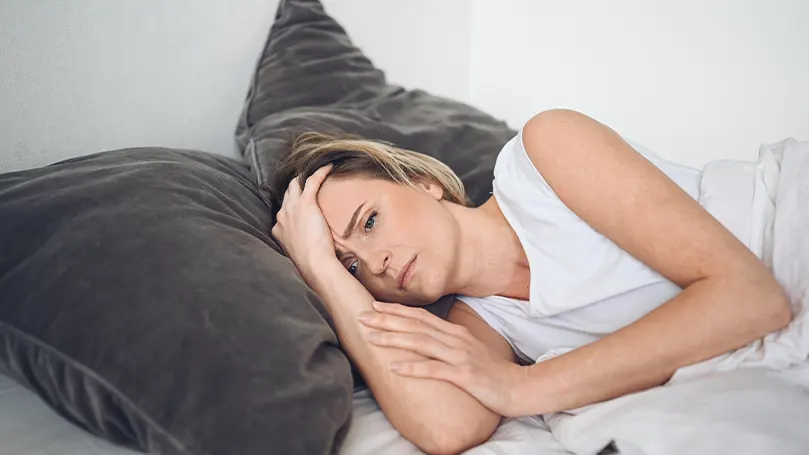
Having a panic attack can be an isolated incident. Maybe you've simply had a really stressful week, you drank a bit too much, and fear overwhelms you for a few minutes. However, sometimes there's also a pattern of repeated panic attacks.
According to NHS, you might have a panic disorder if you have more than one panic attack a month which is then followed by at least a month of anxiety about potentially having another attack. But don't worry, panic disorder is treatable.
Can a panic attack kill you?

Although during a panic attack, people often feel a sense of dread and doom, you can't actually die from one. After all, panic attacks are triggered and manifested through a sense of fear, and not an actual life-threatening situation.
That being said, remember that nocturnal panic attacks are sometimes signs of underlying conditions. So, even though panic attacks can't really harm you, the underlying condition might be more dangerous.
How to calm anxiety at night?
As we've mentioned already, doing your best to stay calm and relaxed in the evening is one of the most common ways to battle nocturnal panic attacks. Plus, waking up in the middle of the night with anxiety is far from ideal for your sleep quality. So, here are a few ways you could do exactly that:
- Take a hot shower – taking a hot shower 60-90 minutes before bed can make it easier to fall asleep and help you take the edge off.
- Get a weighted blanket – consider the Heaviest Weighted Blanket for the ultimate relaxation, which provides even more calming pressure through deep touch stimulation. Snuggling under a good weighted blanket has been shown to decrease anxiety through a process known as Deep Touch Pressure Therapy.
- Do light yoga or stretches – light aerobic exercises have been shown to both better your sleep and help you relax.
- Drink a cup of warm milk or herbal tea – although some foods and beverages should be avoided before bedtime, others can help you doze off peacefully.
- Have someone to talk to – as cheesy as it is, most people appreciate those late-night FaceTime calls where you both drift off to sleep, and this can do wonders for your anxiety levels.
Waking up with chest pain – am I having a panic attack?
It's only natural to freak out when experiencing chest pain, especially when it yanks you out of a pleasant dream all of a sudden. And, unfortunately, this can be a symptom of a wide range of conditions. We recommend looking at the full list here.
But if you quickly want to figure out whether it was a panic attack, here's what we suggest you take into account. Do you have a history of waking up anxious in the middle of the night, and have you ever had a panic attack during the day?
If the answer to both of these questions is yes, there's a good chance you experienced a panic attack when waking up. However, it's always better to be safe than sorry (especially when it comes to chest pain), so be sure to see your GP and get their assessment.

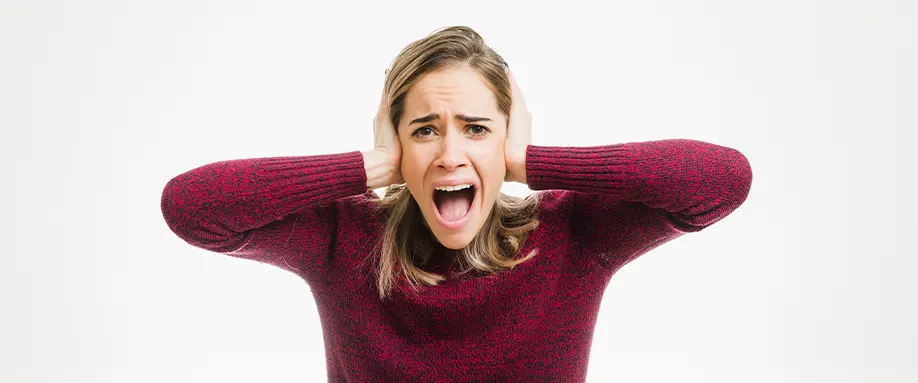
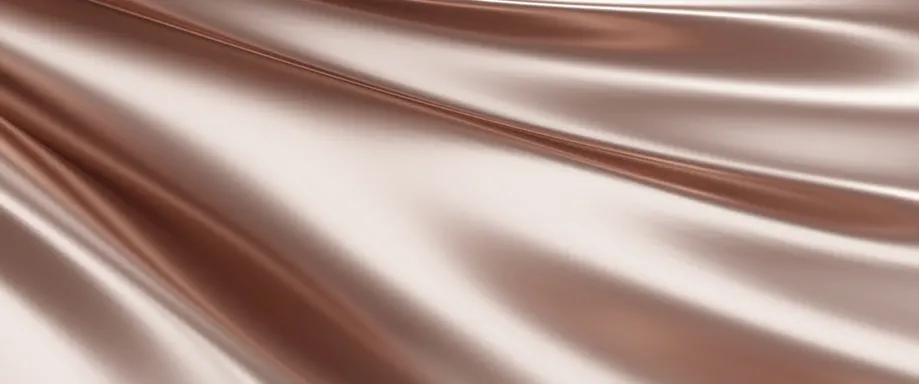
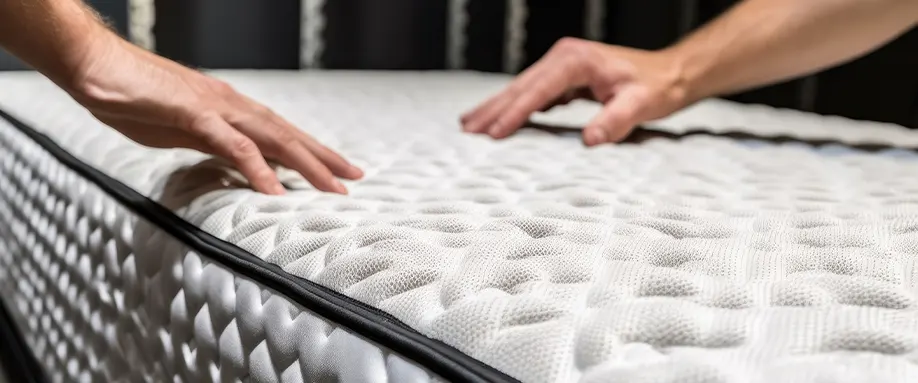











There are no comments yet
"*" indicates required fields